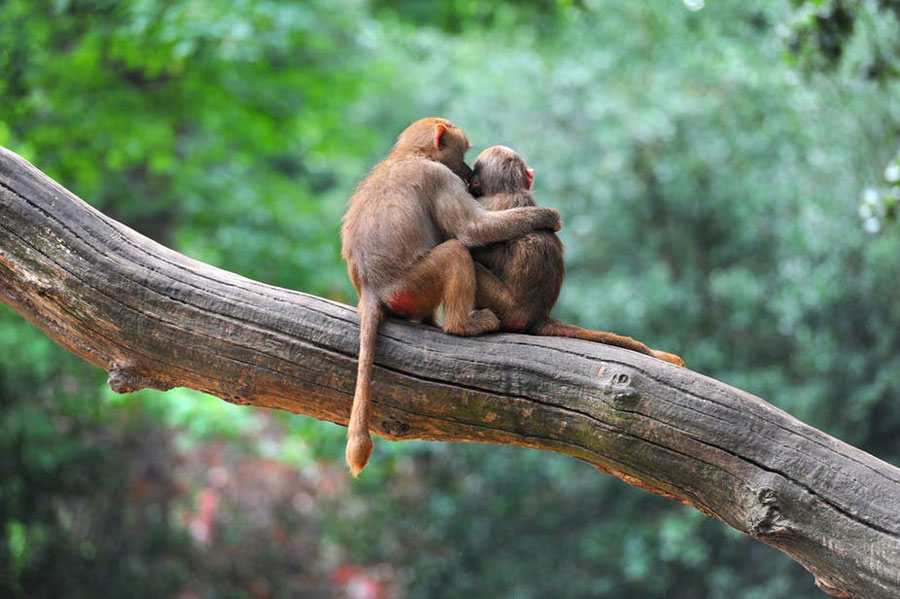 The best of friends. Hung Chung Chih/Shutterstock
The best of friends. Hung Chung Chih/Shutterstock
For us humans, getting involved in an aggressive conflict can be costly, not only because of the risk of injury and stress but also because it can damage precious social relationships between friends – and the same goes for monkeys and apes.
Just like humans, they also form selective long-term bonds. And in the primate world, aggression is especially harmful to these relationships because of tolerance reach breakpoint and so the rate of friendly interactions.
Like human families, for monkeys and apes, the day-to-day business of living in a group inevitably brings quarrels. Disputes could be over trivial matters such as who gets the shady spot to rest in, who’s in charge, who to groom, who to mate with, who to huddle up within the cold or where to feed? Life is not easy and mostly unfair But luckily, primates have a whole arsenal of strategies up their sleeves to forestall or lighten the costs of aggression.
They will simply submit and thereby calming tensions before they spiral out of control. But if aggression is unavoidable and a fight occurs primates can also repair their relationship through reconciliation and thus helping re-establish friendly contact.
Conflict resolution
Reconciliatory behaviour was first recognised by Frans de Waal in the 1970s in a seminal study of post-conflict behaviour in chimpanzees. On the surface, reconciliation boils down to friendly contact between opponents soon after a fight but it also seems to do more than just end the conflict.
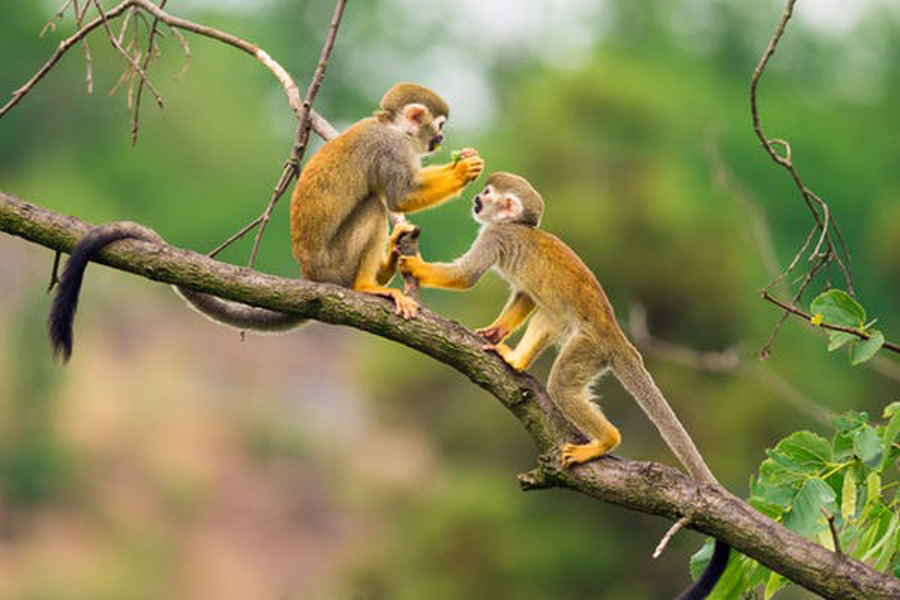 ‘Hi friend’. Nick Fox/Shutterstock
‘Hi friend’. Nick Fox/Shutterstock
Anxiety levels in primates after fights are related to the quality of the relationships between the former opponents. Among humans, this makes perfect sense, if you argue with a close friend, you’re much more stressed than if you’ve argued with a passing acquaintance.
Making amends
Friendships improve health and increase survival and reproductive success in many species, such as dolphins, horses, birds and primates, so it’s not surprising that mechanisms have evolved to alleviate damage to a relationship caused by aggression.
The fact that reconciliation is common to many social species shows how deep-rooted our own tendency is for peace-making. But it would seem that some techniques are actually learned rather than innately acquired.
Frans de Waal showed that the reconciliatory behaviour of quarrelsome, juvenile rhesus macaques, could be increased threefold after a few months of co-housing with more easygoing, peacemaking stumptail macaques.
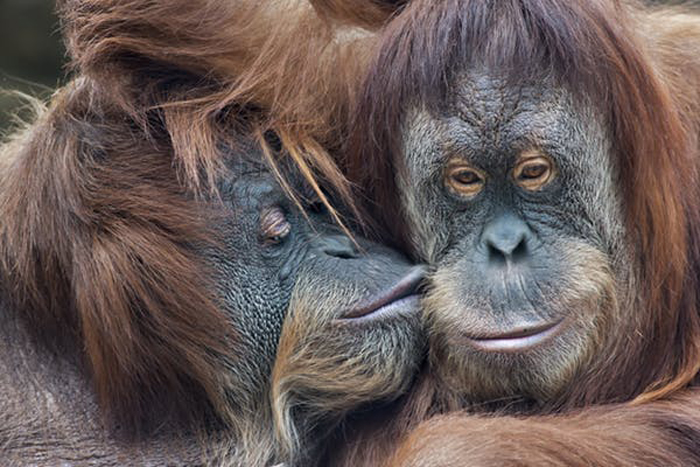 Give us a kiss’. olga_gl/Shutterstock
Give us a kiss’. olga_gl/Shutterstock
Showing empathy and condolence are social skills that juvenile acquires only through experience, rather than an inborn behaviour.
Indeed, adult chimpanzees often reconcile using grooming and even a mouth-to-mouth kiss. Young chimpanzees reconciled the best way they know how – through play.
Monkeying around
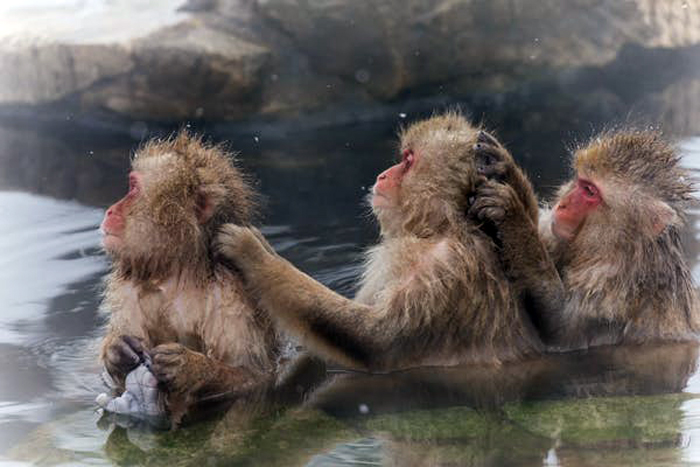 Friends who bathe together stay together. norikko/Shutterstock
Friends who bathe together stay together. norikko/Shutterstock
When it comes to us humans, while we probably don’t fancy grooming every person we’ve fallen out with – or kissing them – it’s clear that when it comes to settling arguments, both species prefer peacemaking.
So next time you fall out with your co-worker maybe try as the primates do and work on that conflict resolution – a bit of lip-smacking, a bit of a back scratch and hopefully you’ll be friends again in no time.
Read the full in The Conversation


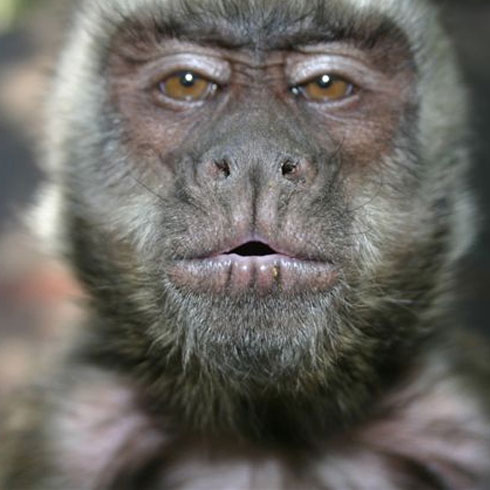 Conservation in Southern Africa is rapidly becoming unsustainable without the active involvement of the community, especially the younger, more active generation. The Bushbabies Monkey Sanctuary and The Elephant Sanctuary group strongly believe that we have to get the younger members of communities involved to instill a passion for the environment and wildlife in them through education.
Conservation in Southern Africa is rapidly becoming unsustainable without the active involvement of the community, especially the younger, more active generation. The Bushbabies Monkey Sanctuary and The Elephant Sanctuary group strongly believe that we have to get the younger members of communities involved to instill a passion for the environment and wildlife in them through education.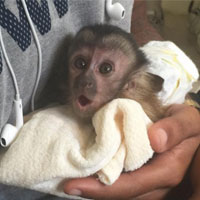 I'll introduce you to Joyce, for example. A young female capuchin, she was rather pampered with child-like paraphernalia; a dress and a small hat around her head. Cute, indeed. She had been with her "foster" family since only two months old, bought straight from a breeder. The couple who owned her did not have children, and so decided to substitute the missing link with a primate, albeit a bit smaller...and with sharper teeth.
I'll introduce you to Joyce, for example. A young female capuchin, she was rather pampered with child-like paraphernalia; a dress and a small hat around her head. Cute, indeed. She had been with her "foster" family since only two months old, bought straight from a breeder. The couple who owned her did not have children, and so decided to substitute the missing link with a primate, albeit a bit smaller...and with sharper teeth.



